Language and power in the time of pandemic
Language is a key tool to control those who threaten the absolute power of the Chinese Communist Party
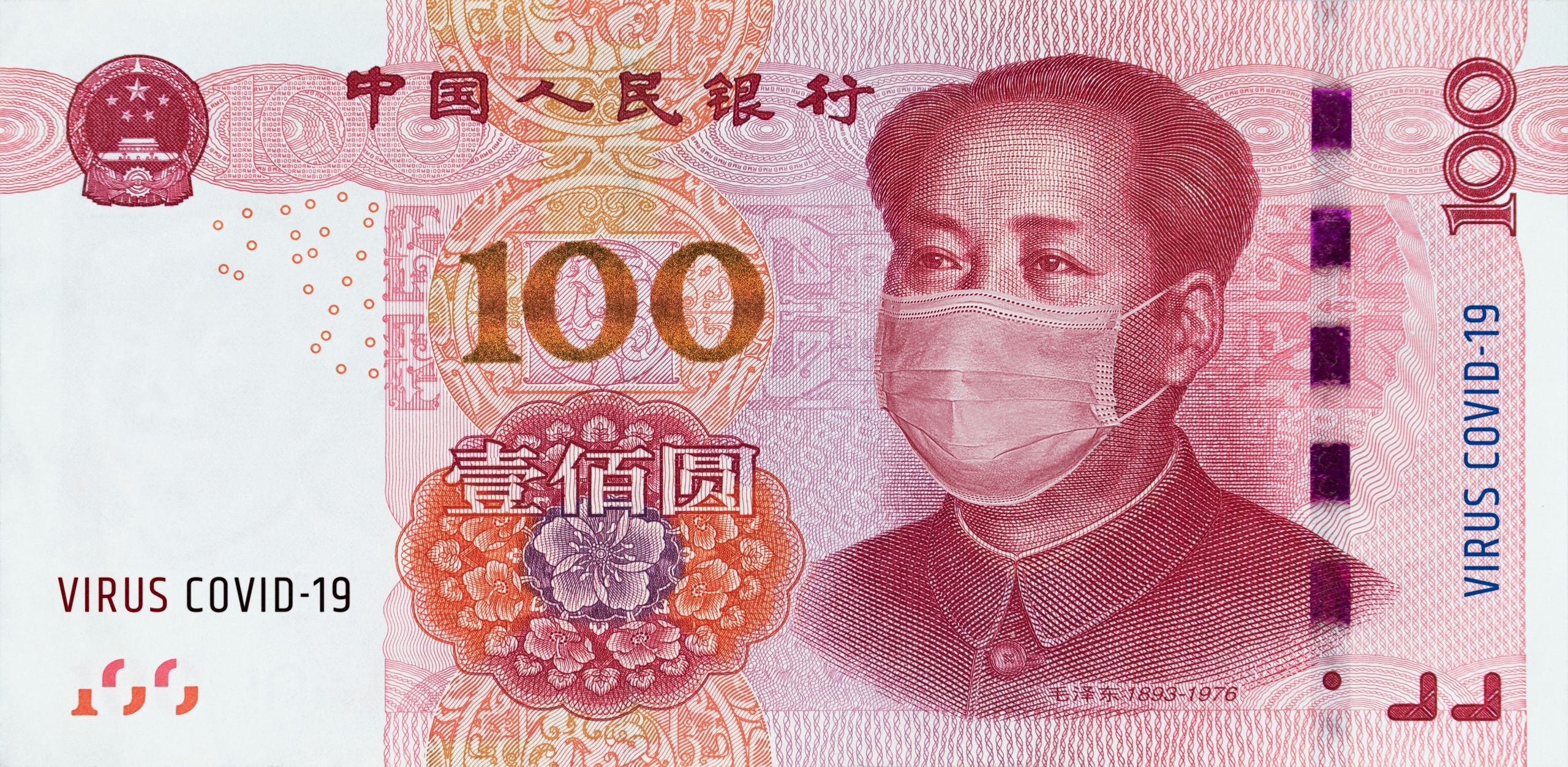
In order to understand how the Communist Party governs China it helps to realize that the party works very hard to control the narrative.
This is even to the point of silencing and arresting those who present a different viewpoint.
The new coronavirus outbreak illustrates this clearly.
Various doctors in Wuhan first reported the disease in late December, including a young ophthalmologist Li Wenliang who was subsequently detained and chastised for “making false statements” that had “threatened social order.”
Li had accurately reported the presence of a new coronavirus from cases that had been seen in his city, although it was not until Jan. 23 that China’s President Xi Jinping issued the order to lock Wuhan down.
These days of delay have had crucial consequences on people’s health, both in China and abroad.
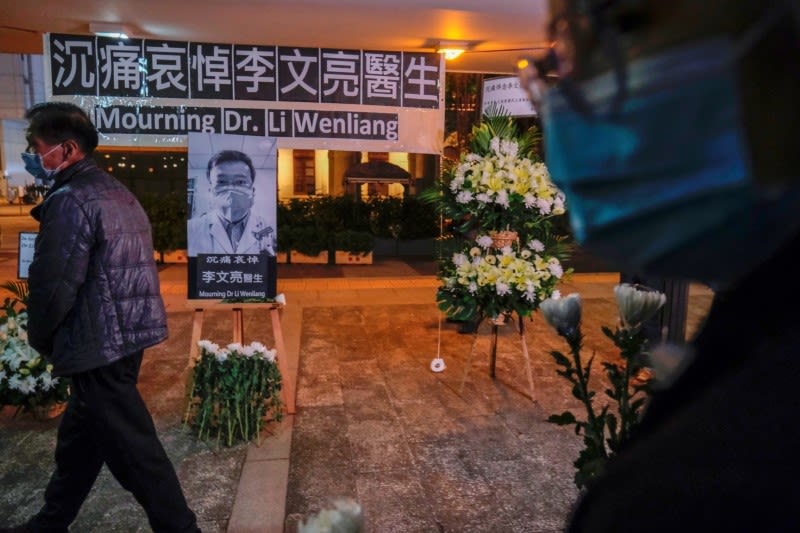
A vigil in Hong Kong for the late Li Wenliang, an ophthalmologist who died of coronavirus at a hospital in Wuhan, China. (Photo by Tyrone Siu/Reuters)
A vigil in Hong Kong for the late Li Wenliang, an ophthalmologist who died of coronavirus at a hospital in Wuhan, China. (Photo by Tyrone Siu/Reuters)
In other areas of civic life, as for instance religion, the arts or human rights law, any time an individual begins to amass a following that threatens the party’s control of the narrative then they too are arrested and charged.
Usually the charge is an all-encompassing one, as for instance happened in December 2019 when the Protestant pastor Wang Yi, leader of the Early Rain Covenant Church in Chengdu and a prolific blogger, was imprisoned on the charge of “inciting to subvert state power.” Other famous so-called subversives include artist-activist Ai Weiwei and the now deceased Nobel Prize Winner Liu Xiaobo.
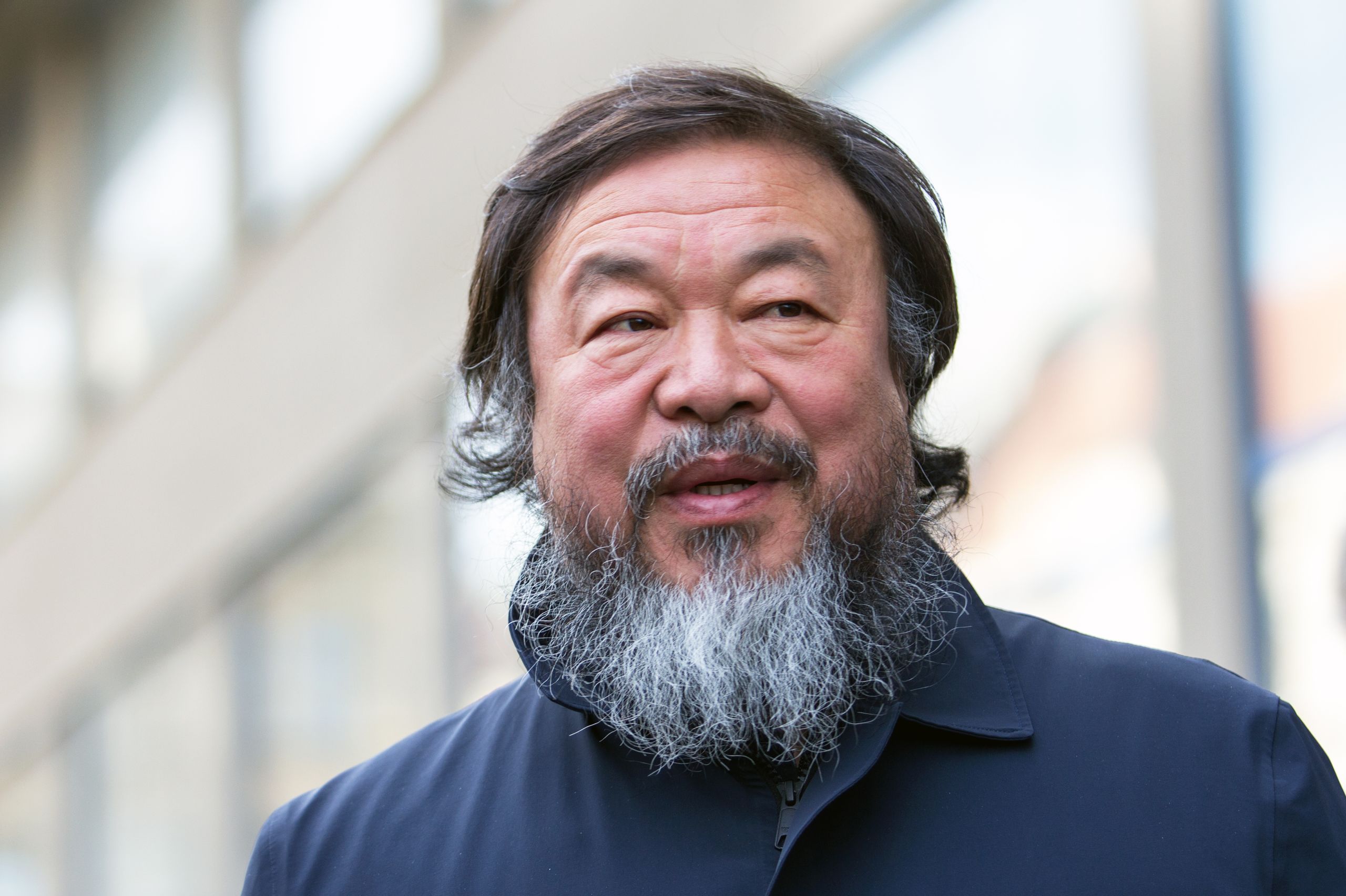
A file image of Chinese artist-activist Ai Weiwei. (shutterstock.com photo)
A file image of Chinese artist-activist Ai Weiwei. (shutterstock.com photo)
As with most of China’s present realities, it is important to situate them within an historical context. Thus, the desire to control the narrative can be seen to have begun very early in the party’s foundational years.
It is timely to recall at this new period of national (and international) crisis that the party was formed at another time of hardship, when the economy was floundering, and a rising Japan threatened China’s movement into modernity and independence from foreign control.
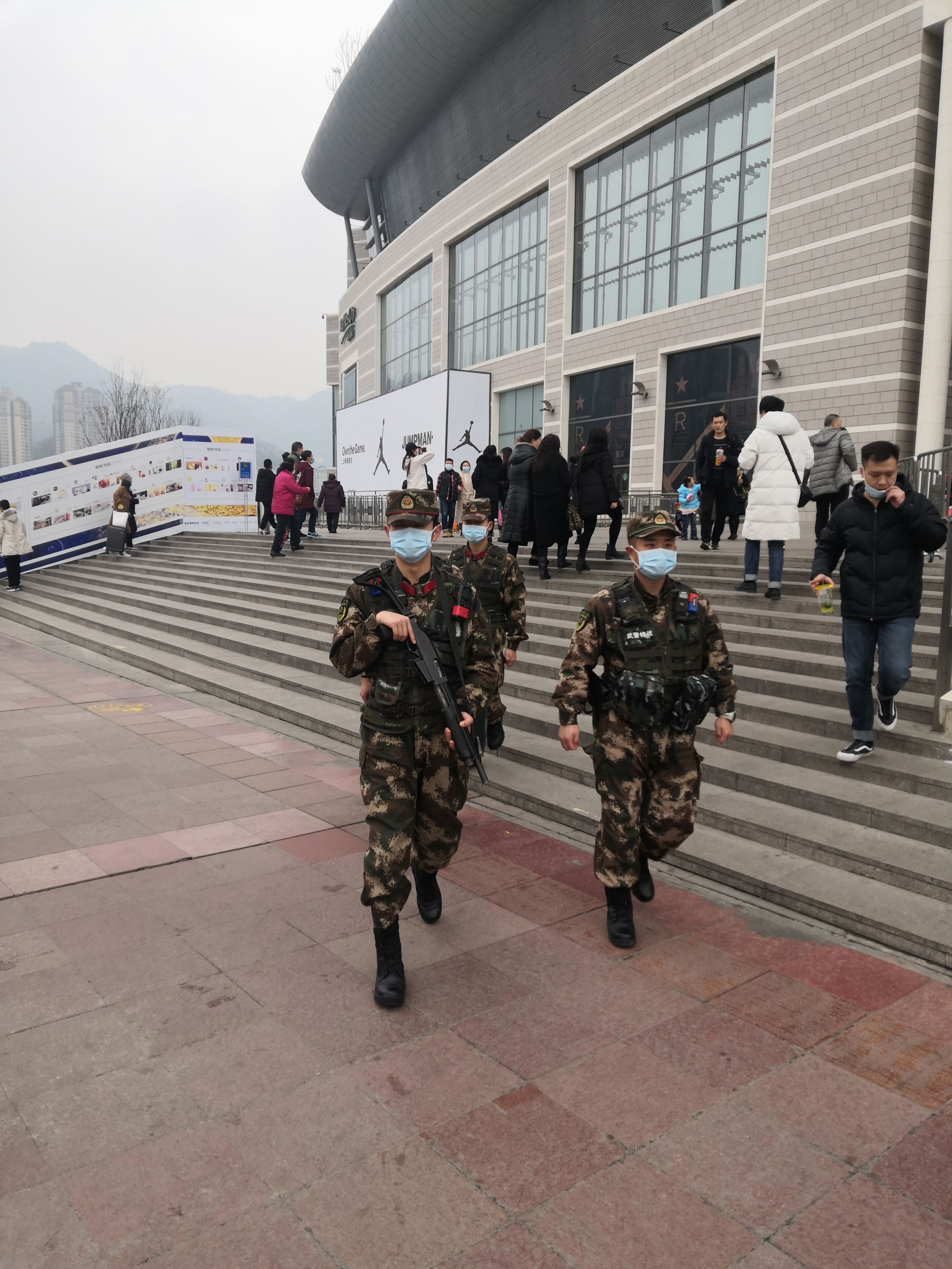
Party leaders were learning how to use a new lexicon, principally Marxist dialectical discourse and language borrowed from their communist comrades in Russia, which were a far cry from Confucian statements on good governance. The aim of this language was simple, to control how the political narrative unfolded. Centralizing the news sources also furthered this aim.
Early on in Mao’s career, when in 1927 he conducted a study of the peasant movement in Hunan (his home region), he uttered a statement that was to become a guiding light for subsequent central Party rule.
Reflecting upon the necessary changes that must come about in society to bring about the type of control the party wanted, Mao wrote:
“A revolution is not a dinner party, or writing an essay, or painting a picture, or doing embroidery; it cannot be so refined, so leisurely and gentle, so temperate, kind, courteous, restrained and magnanimous. A revolution is an insurrection, an act of violence by which one class overthrows another.”
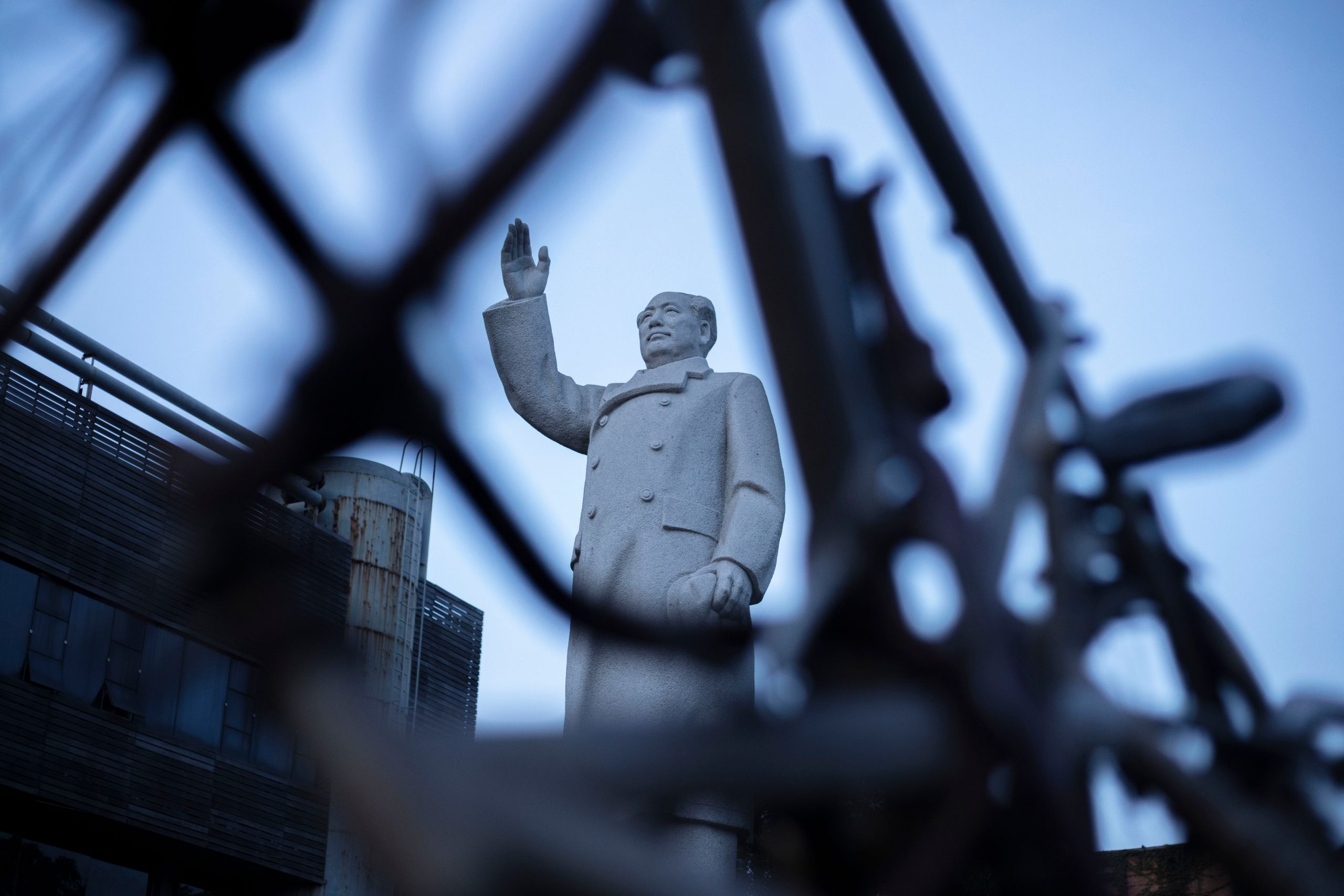
A monument of chairman Mao Zedong in a square in Nanchang, China. (shutterstock.com photo)
A monument of chairman Mao Zedong in a square in Nanchang, China. (shutterstock.com photo)
Language is thus one of the key tools used in this act of insurrection, both to control those who threaten the absolute power of the party but also to convince others that the party is in fact in charge and everything will be fine.
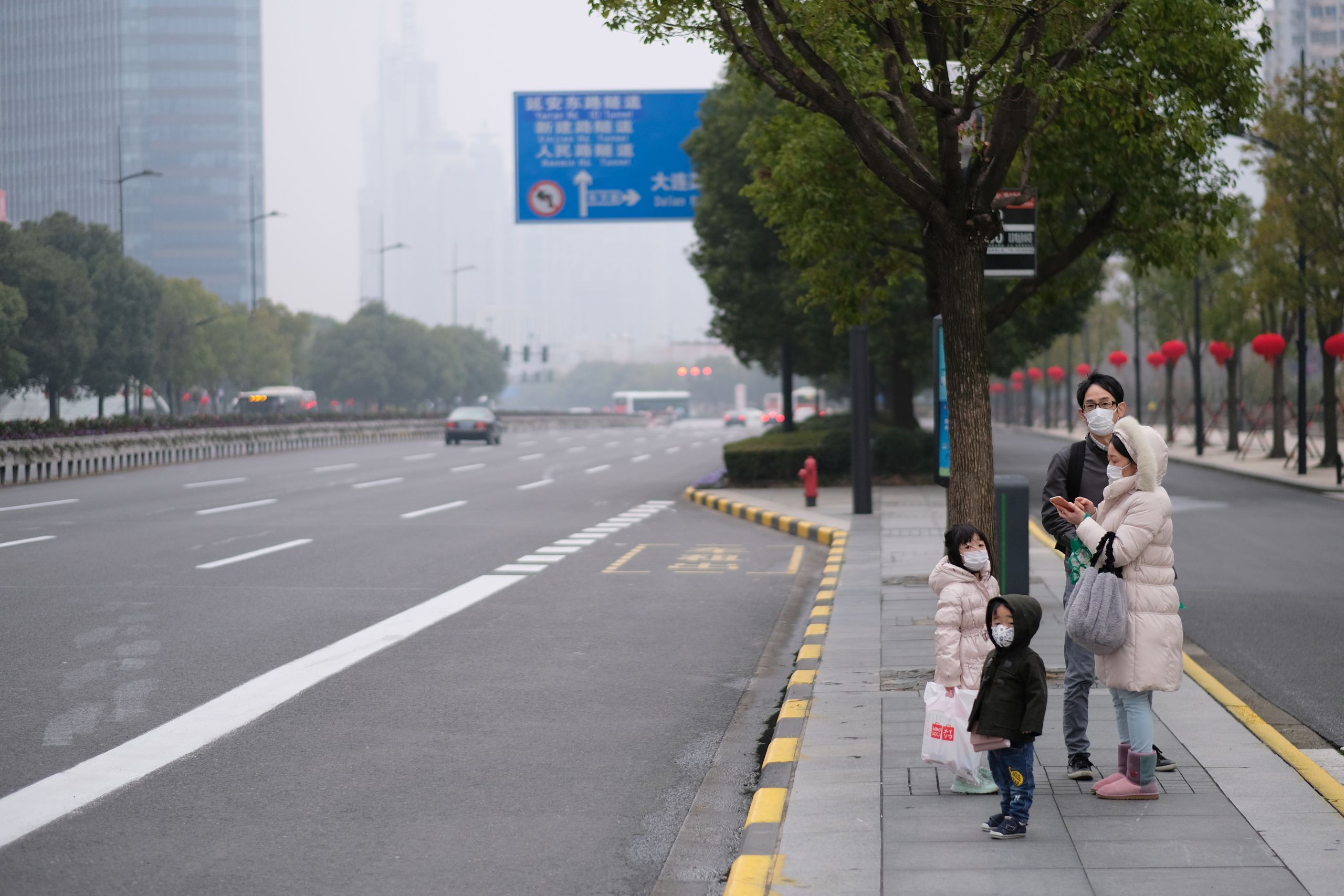
A family wearing mask wait at bus station in Shanghai, China sometime in January. (shutterstock.com photo)
A family wearing mask wait at bus station in Shanghai, China sometime in January. (shutterstock.com photo)
The need to guide national discourse thus originated in the world of violence, and the party is conscious that this is a never-ending battle.
A young doctor stating that control has been lost — and the spread of contagion is likely — becomes more of a threat than the virus itself, because his statement undermines the central over-arching story of the government.
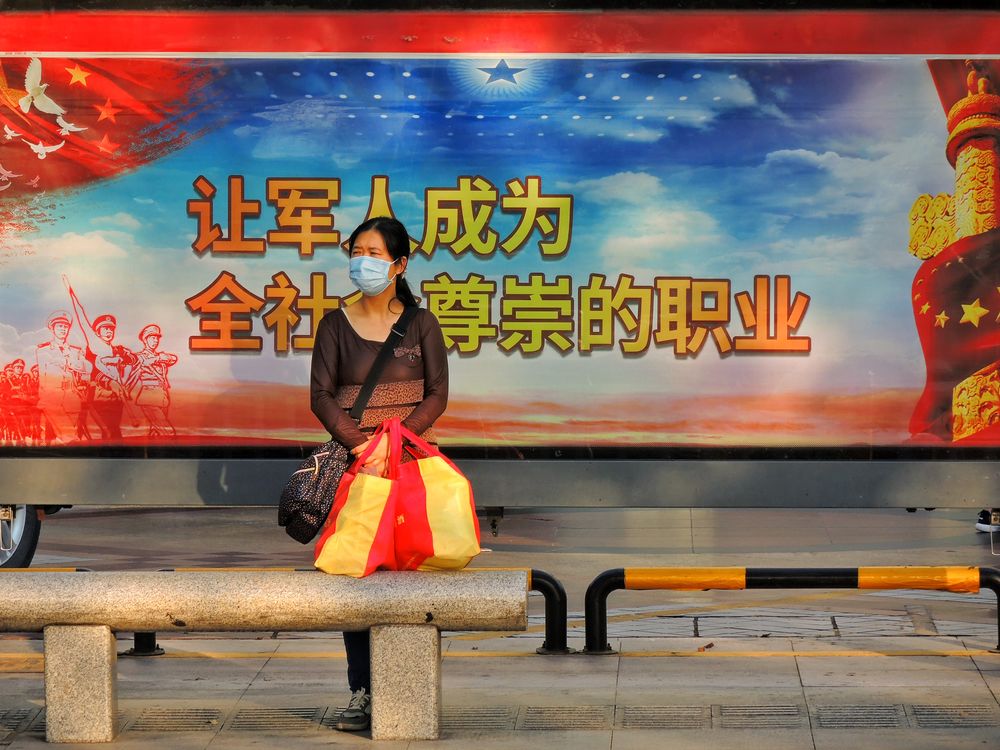
A woman waiting at a bus stop in Huizhou, China. (shutterstock.com photo)
A woman waiting at a bus stop in Huizhou, China. (shutterstock.com photo)
Every party leader since Mao has thus been alert to the power of language and they have harnessed political discourse to the party’s ends. Notable examples include Deng Xiaoping’s talking of “black cats and white cats” to describe the flexibility needed in the new economic order and Hu Jintao’s exhortation to build a “harmonious society.”
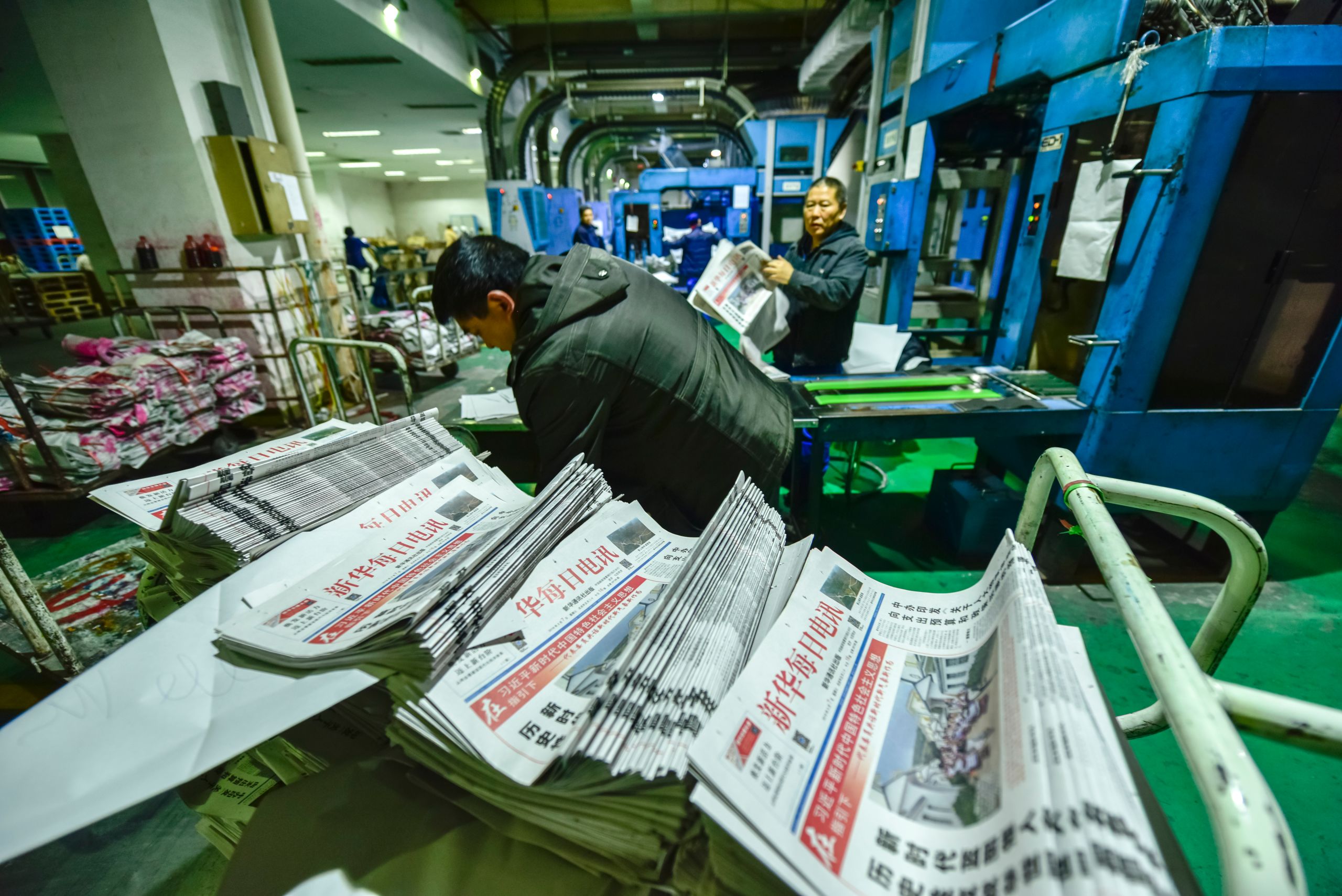
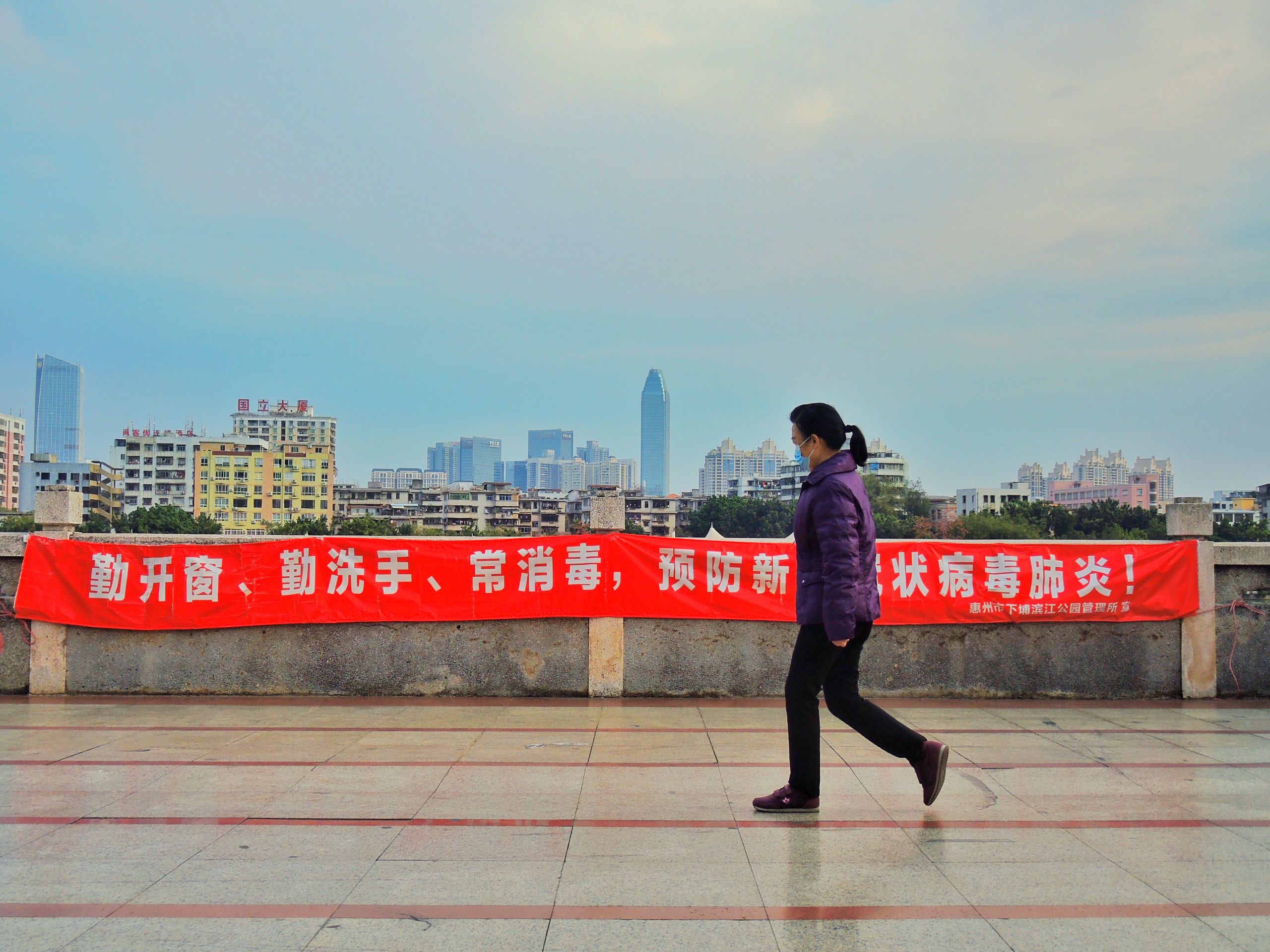
An image of government propaganda banners during the coronavirus crisis in the city of Huizhou in Guangdong, province, China sometime in February. (shutterstock.com photo)
An image of government propaganda banners during the coronavirus crisis in the city of Huizhou in Guangdong, province, China sometime in February. (shutterstock.com photo)
The hardest working member of the party is therefore language itself, and the most active members of the team are adverbs and adjectives, any linguistic qualifier that can say breathlessly what the party wants.
The more militaristic the language the better, as it reminds the listeners that the party is fighting for the nation against enemies within and without who seek to keep China down and not as powerful as the party believes it should be. Thus, in recent months, China’s journalists were encouraged by the government to report “touching stories from the front line of combating the disease.”
In this view, health workers become foot soldiers in a battle for life and death.

(shutterstock.com photo)
(shutterstock.com photo)
During the coronavirus outbreak the government has been busy with its adverbial and adjectival utterances: Xi Jinping commanded that the virus must be “resolutely contained”, a Tianjin man was arrested for “maliciously publishing aggressive speech” and the Wuhan police hoped that Doctor Li Wenliang could “actively co-operate” with their demands.
These exhortations all work to remind the people that while the reality of being a citizen in lockdown might suggest otherwise, the party is in fact in control, resolutely and absolutely.
We know this, because the president has said so and therefore it must be true.
Candida Jin* is an expert in Chinese religious history and contemporary culture and has worshiped in churches throughout mainland China, as well as throughout Asia. The views and opinions expressed in this article are those of the author and do not necessarily reflect the official editorial position of LiCAS.news.
*Penname used for security reasons.
© Copyright 2020 LiCAS.news
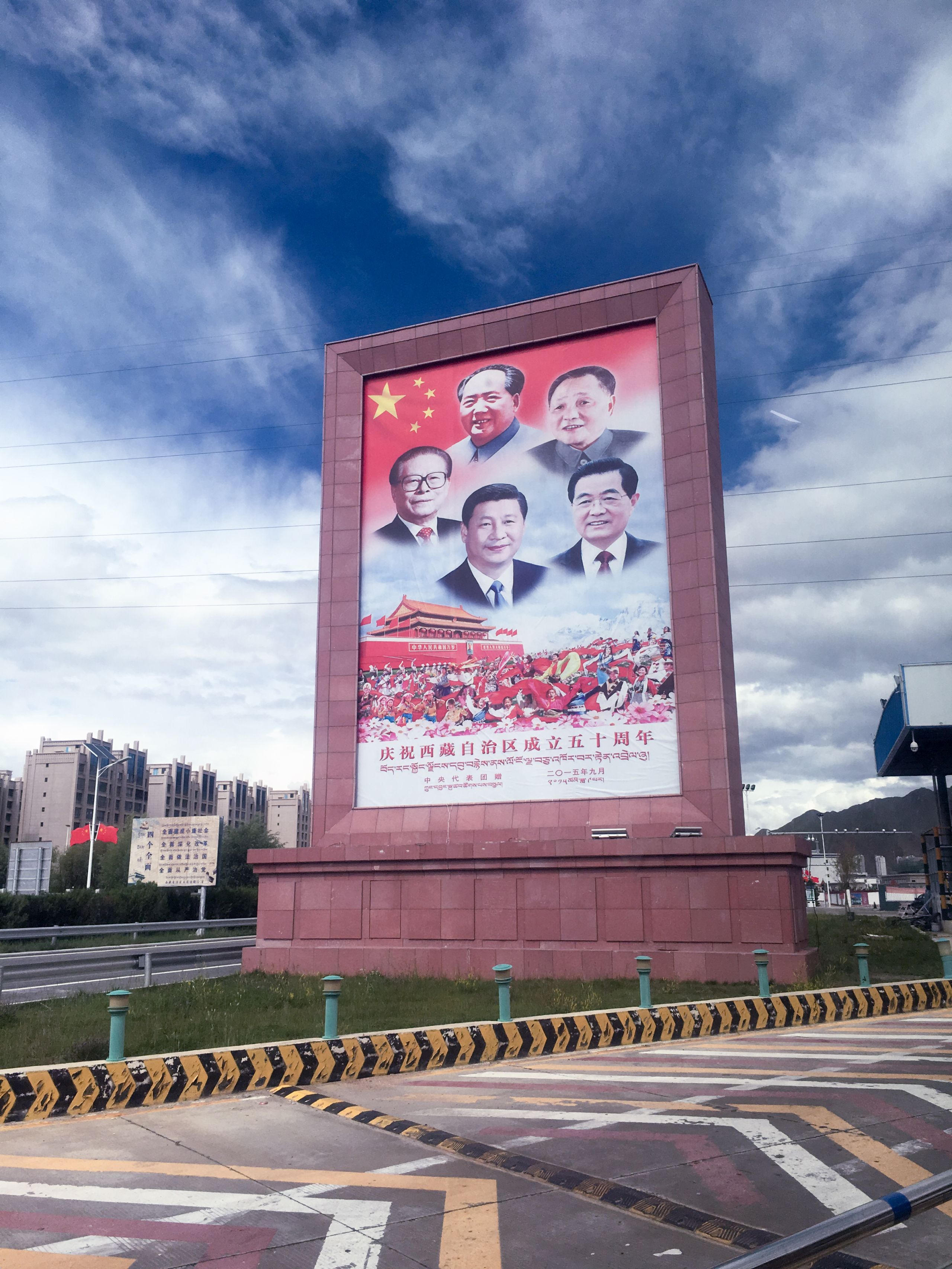
Huge propaganda poster in Lhasa with faces of Chinese presidents erected to celebrate the 50th anniversary of the so-called foundation of the Tibet Autonomous Region. Image taken July 29, 2017. (shutterstock.com photo)
Huge propaganda poster in Lhasa with faces of Chinese presidents erected to celebrate the 50th anniversary of the so-called foundation of the Tibet Autonomous Region. Image taken July 29, 2017. (shutterstock.com photo)
